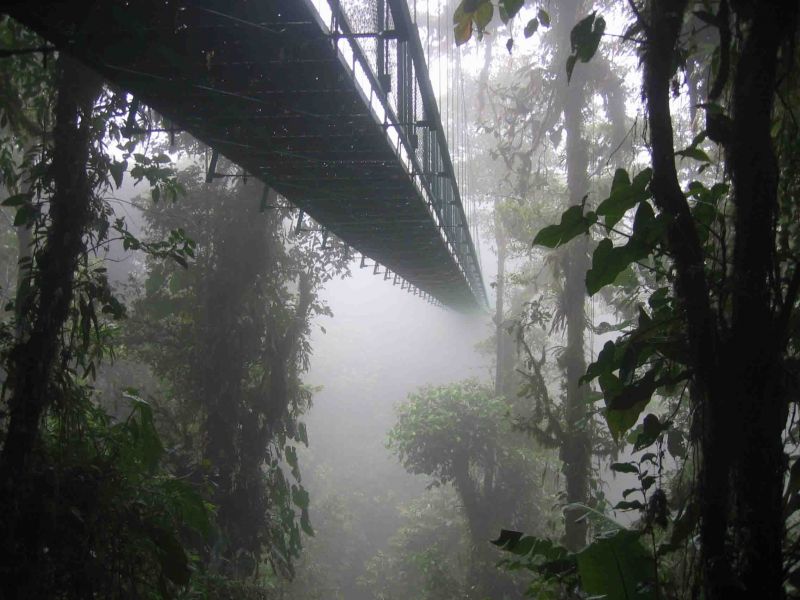
Photo by Dirk van der Made, courtesy Wikimedia Commons
A new study disputes a widely-held assumption that protecting forest resources exacerbates poverty for people living nearby.
Instead, this novel research shows that saving rainforests and protecting land in national parks and reserves reduced poverty in Costa Rica and Thailand. The researchers looked at the long term impacts of poor people living near parks and reserves established in 1985 or earlier. From the abstract:
“As global efforts to protect ecosystems expand, the socioeconomic impact of protected areas on neighboring human communities continues to be a source of intense debate. The debate persists because previous studies do not directly measure socioeconomic outcomes and do not use appropriate comparison groups to account for potential confounders. We illustrate an approach using comprehensive national datasets and quasi-experimental matching methods. We estimate impacts of protected area systems on poverty in Costa Rica and Thailand and find that although communities near protected areas are indeed substantially poorer than national averages, an analysis based on comparison with appropriate controls does not support the hypothesis that these differences can be attributed to protected areas. In contrast, the results indicate that the net impact of ecosystem protection was to alleviate poverty.”
Coauthor and economist Paul J. Ferraro tells Georgia State University the results are counterintuitive:
“Most people might expect that if you restrict resources, people on average will be worse off.”
The authors speculate that conservation of biodiverse areas may help poor people through tourism and infrastructure, notably new roads providing new economic opportunities.
The paper is open access at PNAS;
















